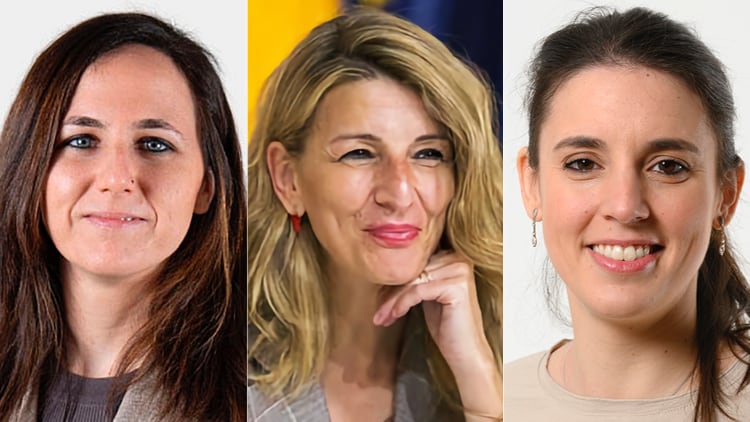Ángel Collado
Pedro Sánchez has managed to get the end of the legislature on track with a government in a constant internal struggle, although united by the will to remain in power with the same left-wing coalition formula.
The president of the Governmente imposes discipline on the PSOE, and even opts for Podemos’ positions when he considers it necessary for his stability, but the other part of the front is still unclear about the legacy of founder Pablo Iglesias. The socialists fear that their more populist partners will go to the ballot box divided and that their representation will be so diminished that they will not be able to achieve left-wing majorities.
Sánchez acknowledged in April last year that he aspires to repeat his mandate after the general elections in coalition with “the space” represented by Yolanda Díaz. The prime minister did not mention Podemos, the party founded by Pablo Iglesias, with whom he signed the current pact that brought him to office.
Nine months later, the problem for the PSOE secretary general’s plans is that neither the heirs of Iglesias who control Podemos like the vice-president and labour minister of Sánchez’s government, nor does she like Podemos. Díaz, who comes from Izquierda Unida, launched an electoral platform called “Sumar”, but it has failed to get off the ground. So much so that the brand has given up standing in the first elections of the year, the regional and municipal elections on 28 May.
On leaving the cabinet, Iglesias imposed on Sánchez that his position as second vice-president should go to Yolanda Díaz, who is already the head of the Labour Ministry. The change also meant that Ione Belarra, secretary general of Podemos and a friend of Irene Montero, the minister for equality and mother of Iglesias’ children, was promoted to minister for social rights.
Belarra and Montero lead the far-left party and are pressuring Díaz to become a Podemos candidate with all its consequences, including the continuity and defence of the brand. The vice-president does not want to take on this commitment and prefers a project centred on her person, more transversal and without the burden of the extremist image of Iglesias’ party, successors and executors.
The second vice-president is herself, between Sanchistas and podemitas, a third sector of Sánchez’s government. She disagrees with the PSOE vice-presidents on economic policy, dissociates herself from the most populist projects of the Podemos ministers – such as the ‘only yes is yes’ law – and does not follow the anti-Atlantist postulates of her former colleagues in the Communist Party, the core of Izquierda Unida.
The problem for the interests of the chief executive is that his declared tutelage of Díaz to bring together the entire far left at the national level has only served to increase the division and mistrust in this political space. Podemos is on the decline in all polls, both private and governmental (CIS), with losses of two or three points in voting intentions, which in general elections would mean losing between 10 and 15 of the 35 seats they now contribute to the 155 of the social-communist coalition.
The regional elections in May will be the first effective test of this erosion of the populist left that the polls indicate, and also of its capacity to complement the PSOE’s relative majorities.
Podemos, in crisis in almost all of Spain, is decisive for the Socialists to be able to repeat coalition governments in the Valencian Community, Aragon, the Balearic Islands, the Canary Islands, La Rioja and Asturias. So far, only in the latter two regions has the agreement for joint Podemos and Izquierda Unida candidacies been reached.
The outlook in Castile-La Mancha and Extremadura, the only two autonomous communities with an absolute majority for the PSOE, is the worst for the ‘morados‘: in the former they have little chance of entering the regional parliament, and in the latter they are threatened with extinction.
The governmental media are encouraging a grand agreement of the entire far left that would bring together this vote and serve as a crutch for Sánchez to stay in power for another term. It is “the space” that the president of the government wants to outsource exclusively to Yolanda Díaz. His aim is to simplify the left-wing front into two, with which he wants to win more seats in the elections than a PP that hopes to benefit from the disappearance of Ciudadanos, even if it has to contend with competition from the extreme right of Vox.






